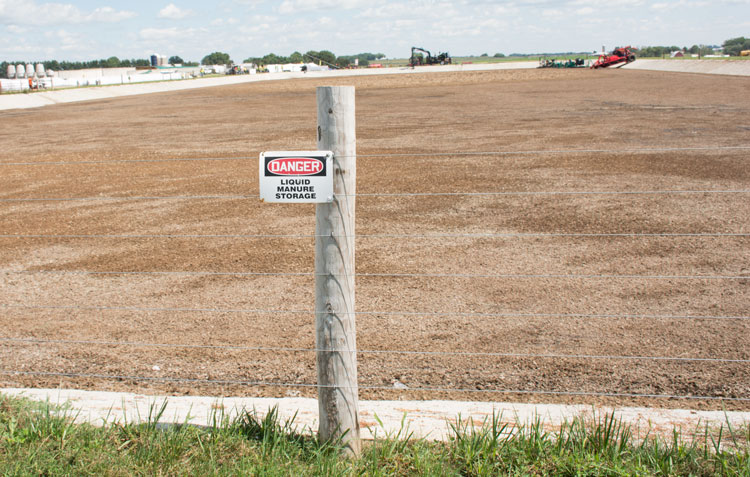
In most of the country, the fall season has been plagued with wet weather that pushed back harvest and fall planting. Saturated fields have also made it nearly impossible to get fall manure applications completed. To top it off, the excessive rainfall has also filled manure storage systems with more liquid.
With that comes the danger of overfilling manure storages this winter. The Pro-Dairy team at Cornell University advised in a recent e-Alert to take stock of storage capacity levels now and make a plan for winter application in case it becomes necessary.
“Although the goal is always to avoid spreading when conditions are poor, it’s important to be prepared in case your back is against the wall with extended wet field conditions and a storage that is at risk of overtopping,” the team stated.
The ultimate goal should be to avoid manure runoff that can result in water contamination. Although not all parts of the country have as strict of regulations on manure runoff as New York and parts of the Northeast, winter application of manure should still be done with runoff and local water quality in mind.
Connect with your Concentrated Animal Feeding Operation (CAFO) planner or the Natural Resource Conservation Service to help identify low-risk fields and other practices to limit hazards if spreading must take place.
Don’t spread here
According to Cornell’s Revised winter and wet weather manure spreading guidelines to reduce water contamination risk, fields that should be considered off-limits for winter spreading include those that have had past runoff problems or groundwater/well problems. Additionally, if the field has significant surface runoff or subsurface flow that can reach a stream, or ditch or if it has a slope of greater than 3 to 5 percent toward a stream or watercourse, that field should not be a candidate for winter application.
Finally, consider the weather for the coming days. If significant rainfall or snowmelt is predicted within 48 hours, manure application to a field is risky. Additionally, concrete frosts, ice layers on snow, snow pack, or water-saturated soils should be avoided.
Application of manure may be necessary at times this winter, but it behooves farmers to be prepared for the necessity of it and have a plan in place to avoid fields that put water quality at risk.








